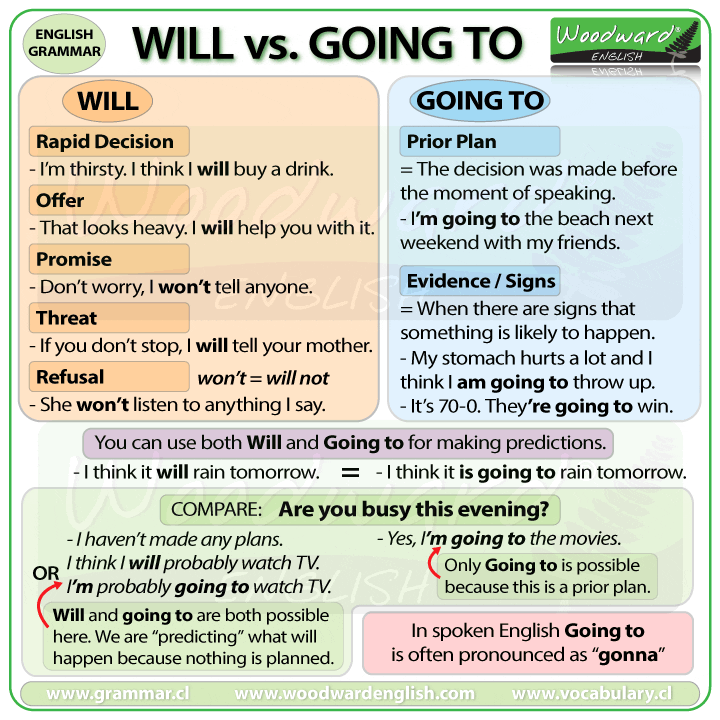
Will and going to are verb forms we use with predictions. They are grammatically a part of the future tense. There are some small but important differences between will vs going to.
Will vs Going To Explanation
Will we use with rapid decisions, something decided at the moment, or an offer, promise, and threat even. Will is the form for something that just comes to mind, and we decide to do it.
Examples
- I will get a cheeseburger.
- Thanks for the lovely dinner, I will clean up at least.
- This concert is not for me. I think I will go to my friend’s party instead.
Going to we use when describing some longer plan, something ongoing, and some kind of evidence or sign. Going to is a form to use when more thought has been put into an action.
Examples
- We talked about it for ages, and we are going to Argentina for our honeymoon.
- We are going to offer you an extended contract after this trial period is over.
- I heard he is going to quit in May. He’s been talking about it for a long time now.
Will and going have these slight differences. Will is a much quicker decision, and going to is more throughout plan. Both are equally important for the proper use of future tenses.
Will vs Going To Examples
We use WILL when:
1. We want to talk about future facts or things that will be true about the future.
- The train will arrive in 10 minutes.
- The sun will rise in the morning.
2. We want to make a promise, offer or a threat.
- I will give you my homework if you help me with this task now.
- I promise I will help you tomorrow.
3. We are making a decision at the moment of speaking.
- The ice-cream looks good. I think I will get one for John.
- There’s no orange juice in the fridge. I will go and get some now.
We use TO BE GOING TO when:
1. The decision has already been made.
- I’m going to meet with her after work.
- We’re going to come to your house at 8 am tomorrow.
2. We are making a future prediction based on the evidence now.
- It’s going to rain soon. The sky is very cloudy, and I can hear a thunder.
- The tea is too hot. You’re going to but your lips.
3. Something is about to happen.
- Oh, no! The balloon is going to pop now!
- Careful! The bomb is going to explode.


























